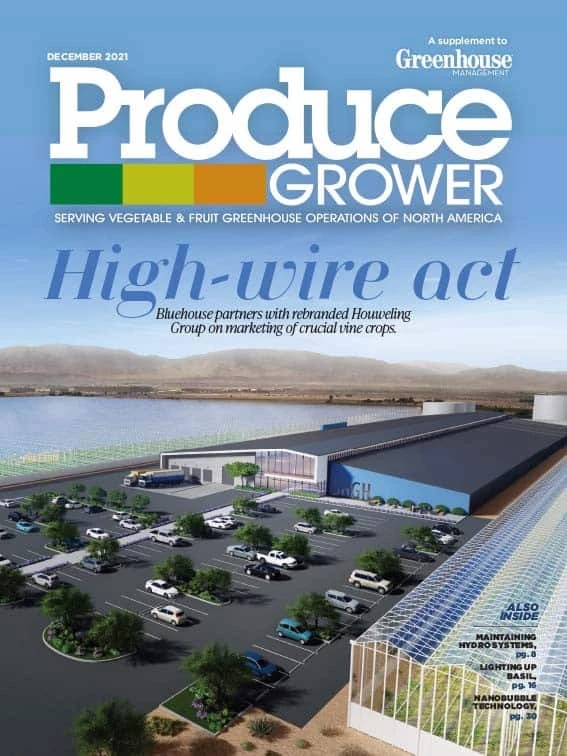

Produce Grower: Why is a healthy transplant so critical?
Jeena Andrews & Pierre Marc de Champlain: Moving from the greenhouse to the field, even after hardening off, is stressful for the plant. Young plants with healthy roots will establish more successfully when transplanted in the field. They can more rapidly overcome transplant shock as the roots spread out quickly and have access to give access to more nutrients. Healthy transplants are also less susceptible to pests and diseases. This translates to better stands and earlier harvests which can increase profits to offset the additional production costs associated with transplanting itself. Corrective measures are more difficult to implement outside of the controlled environment.
PG: How can using a quality substrate contribute to producing a healthy transplant?
JA & PMC: A quality substrate is the foundation for healthy plants. It is essential to use a consistent growing media with uniform physical and chemical characteristics that provides the ideal environment for the transplants. With our BM2 series, overall management of production is more efficient and less labor intensive with greater crop uniformity. Differences in growth will inevitably require adjustments to the irrigation and fertilization strategy, which can quickly become very challenging and expensive. Using a substrate from a reputable supplier like Berger will help youget a uniform stand, predictable results and better field success.
PG: What are the characteristics you look for in a growing media for veggie transplants?
JA & PMC: This is a critical step as seedlings are very susceptible to diseases. A well-balanced substrate contains components that provide porosity for air space and drainage while also giving adequate water holding capacity. Growers want a substrate that allows them to develop a strong root mass which maximizes transplant success. The fertilizer starter charge should be well balanced, but low enough to prevent stretching. The growing mix should have a finer particle size than traditional horticultural products since you want to maintain uniform moisture around the seed throughout the germination process. However, too much moisture can also be problematic. Fine or coarse grade perlite can be added to give additional drainage. Recent research we have done with fine grade wood fiber has shown tremendous results and has led to the creation of our new BM2 NF Wood products. The combination of fine grade peat moss and wood fiber promotes phenomenal root development and helps produce stalky transplants.
PG: What services does Berger offer to help support growers?
JA & PMC: Berger has a technical services team to assist professional growers that includes grower advisors available to assist throughout the production cycle to help improve yield and simplify operations. Berger’s ISO 9001 certified lab can perform a wide range of chemical and physical analysis including media analysis, water analysis, plant tissue analysis and complete characterization of the growing media. Our technical services team is available to help interpret the results. Our lab also conducts thorough testing of all our products throughout production to ensure quality and consistency. A final inspection report is available for each bale or bag of mix we deliver.

Explore the December 2021 Issue
Check out more from this issue and find your next story to read.
Latest from Produce Grower
- University of Evansville launches 'We Grow Aces!' to tackle food insecurity with anu, eko Solutions
- LettUs Grow, KG Systems partner on Advanced Aeroponics technology
- Find out what's in FMI's Power of Produce 2025 report
- The Growth Industry Episode 3: Across the Pond with Neville Stein
- The Growth Industry Episode 2: Emily Showalter on how Willoway Nurseries transformed its business
- 80 Acres Farms expands to Georgia, Texas and Colorado
- How BrightFarms quadrupled capacity in six months
- Oasis Grower Solutions releases two foam AeroSubstrates for hydroponic growers





